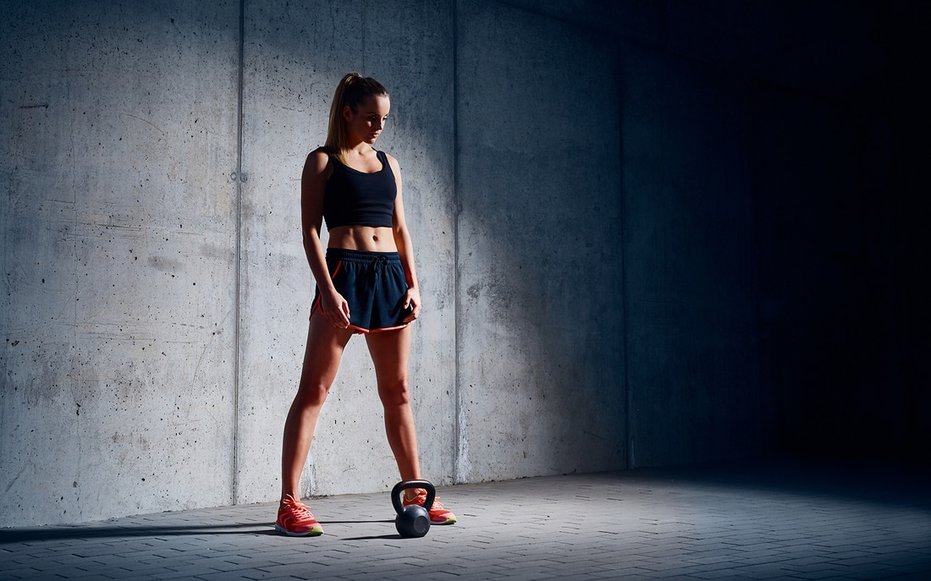A spotlight on vitamin D

Mallory Ritthamel, Staff Writer
03/2017
Vitamins come in many forms, not just in pills from your local GNC. One of the most popular vitamins you need daily is vitamin D.
Vitamin D is used as an antioxidant in the body and has numerous positive functions. Many functions that help an athlete are helping with stress fractures, improved muscle function and immune systems. The functions for athletes as well as non-athletes are to maintain calcium metabolism in the body, regulating muscle function and positive bone health. Vitamin D helps bones absorb calcium. Consuming enough of both can improve performance and health.
The most popular ways to take in vitamin D are beef and fatty fish, such as tuna and salmon; fortified foods, such as orange juice, milk and cereal; some supplements and UV light from the sun. It is recommended to get at least 600 IU, or 15 mcg, each day at a minimum.
Athletes need more than this–about 2,000 IU each day. When you obtain these levels each day, you could reduce levels of inflammation and pain, as well as increasing muscle strength and performance.
Deficiency in the vitamin is very prevalent in many athletes. If an athlete is deficient in this vitamin, they could have a higher risk for fractures and slower recovery from these injuries.
Most of the vitamin D we take in is from the sun. Unfortunately, because we live in the northern part of the United States, athletes have a slightly higher risk for being deficient. Much of the weather here is cloudy and is only sunny for part of the year. Athletes who live in this type of area and compete here need to watch their vitamin D intake more than athletes who in Florida or California.
The UV light from the sun is a great source of vitamin D, so during cloudy and cold weather, athletes should try and consume more vitamin D. There are many scientific research studies showing that decreased amount of vitamin D can decrease an athlete’s performance.
There are other groups of people that are at risk for not getting enough vitamin D: older adults, people who have darker skin, breastfeeding women and people who are overweight. Just like athletes, they need to try and consume more than the usual recommended amount.
http://www.wcuquad.com/6008209/sports/nutrition-a-spotlight-on-vitamin-d/
03/2017
Vitamins come in many forms, not just in pills from your local GNC. One of the most popular vitamins you need daily is vitamin D.
Vitamin D is used as an antioxidant in the body and has numerous positive functions. Many functions that help an athlete are helping with stress fractures, improved muscle function and immune systems. The functions for athletes as well as non-athletes are to maintain calcium metabolism in the body, regulating muscle function and positive bone health. Vitamin D helps bones absorb calcium. Consuming enough of both can improve performance and health.
The most popular ways to take in vitamin D are beef and fatty fish, such as tuna and salmon; fortified foods, such as orange juice, milk and cereal; some supplements and UV light from the sun. It is recommended to get at least 600 IU, or 15 mcg, each day at a minimum.
Athletes need more than this–about 2,000 IU each day. When you obtain these levels each day, you could reduce levels of inflammation and pain, as well as increasing muscle strength and performance.
Deficiency in the vitamin is very prevalent in many athletes. If an athlete is deficient in this vitamin, they could have a higher risk for fractures and slower recovery from these injuries.
Most of the vitamin D we take in is from the sun. Unfortunately, because we live in the northern part of the United States, athletes have a slightly higher risk for being deficient. Much of the weather here is cloudy and is only sunny for part of the year. Athletes who live in this type of area and compete here need to watch their vitamin D intake more than athletes who in Florida or California.
The UV light from the sun is a great source of vitamin D, so during cloudy and cold weather, athletes should try and consume more vitamin D. There are many scientific research studies showing that decreased amount of vitamin D can decrease an athlete’s performance.
There are other groups of people that are at risk for not getting enough vitamin D: older adults, people who have darker skin, breastfeeding women and people who are overweight. Just like athletes, they need to try and consume more than the usual recommended amount.
http://www.wcuquad.com/6008209/sports/nutrition-a-spotlight-on-vitamin-d/
